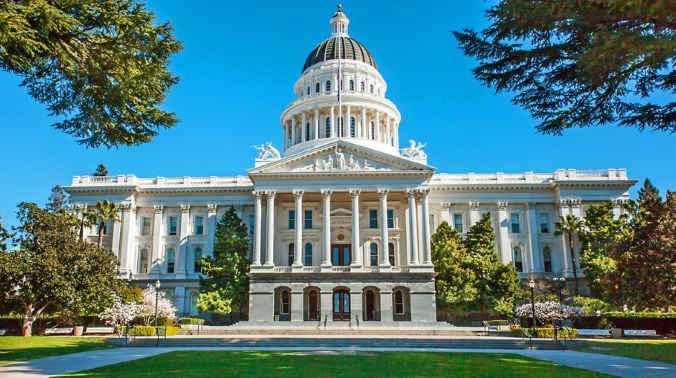California was the first state to legalize cannabis for medical purposes. Now, a new joint resolution by the Golden State’s legislature aims to remove federal barriers to widespread access to cannabis for research and medical purposes. In a resolution overwhelmingly approved on September 14, 2017, California lawmakers voted to urge Congress to remove marijuana from its highly restrictive Schedule I list of harmful and addictive drugs. The resolution is one of many bipartisan efforts to reclassify marijuana in light of its documented health benefits – but all face major obstacles in the Trump administration’s notoriously hard line against access to cannabis in any form.
Schedule I: A “Catch-22” for Research
In 1970, Congress enacted the Controlled Substance Act, which placed a long list of substances on its Schedule of addictive and potentially harmful drugs. Schedule I is the most restricted of these, reserved for drugs that are deemed to be highly addictive and have no accepted medical use. Heroin and LSD are somewhat understandably on Schedule I — and so is marijuana. By contrast, cocaine and methamphetamine appear on the less restrictive Schedule II.
Years of academic and private sector research has demonstrated that marijuana does have significant medical applications for conditions as diverse as epilepsy, depression, migraine, fibromyalgia, PTSD, and cancer.
But the federal government’s stance on marijuana makes it difficult to expand that research and make cannabis-based medications available to anyone who needs them.
Marijuana’s Schedule I status is the ultimate “Catch-22.” The government can classify marijuana as a Schedule I drug and claim it has no medical benefits, which creates nearly insurmountable barriers to federally supported research that would surely prove otherwise.
Bipartisan Efforts Support Rescheduling Marijuana
If marijuana is moved to a lower tier on the Schedule (or removed altogether), it will allow researchers greater access to cannabis and cannabis products for study and will open the way for the development of FDA-approved cannabis medications. That’s the aim of the current crop of legislative initiatives working to change the government’s hardline position on marijuana.
The California resolution is just one of those initiatives. In August 2017, the National Conference of State Legislatures endorsed a resolution that called for removing marijuana altogether from Schedule I, citing its documented medical benefits. And in September 2017, the National Hispanic Caucus of State Legislators also released a resolution that called for the complete legalization of marijuana, citing a long history of racism in marijuana-related laws.
In recent months, federal lawmakers from both parties have also created – or recreated – legislation to ease marijuana restrictions. These include the CARERS Act (Compassionate Access, Research Expansion, and Respect States), the MEDS Act (Marijuana Effective Drug Study) introduced by Senators Orrin Hatch (R-Utah) and Brian Schatz (D-Hawaii), and the Cannabidiol Research Expansion Act of 2017 from the Senate Caucus on International Narcotics Control.
Wider Access Means Greater Benefits
Several other organizations have also begun to advocate for rescheduling or declassifying marijuana altogether. The American Legion is petitioning for rescheduling to make cannabis more widely available to veterans suffering from depression, PTSD, and traumatic brain injury. That would be a major step forward for veterans suffering from these and other combat-related conditions since VA healthcare professionals are currently prohibited from discussing cannabis with patients – even in states where medical cannabis is legal.
Joining the Legion are many other veterans’ organizations, healthcare professionals and advocates for victims of conditions such as arthritis, cancer, and chronic pain. Citing the growing body of private sector and academic research on the medical benefits of cannabis, these groups are becoming increasingly vocal in urging the rollback of restrictive laws on marijuana that create medical and legal hurdles for researchers and consumers alike.
Years ago, California led the way in making cannabis accessible. Now, the state’s new resolution joins a growing number of voices on both sides of the political aisle in their calls to soften the adamantly anti-marijuana stance of an ultraconservative White House.

